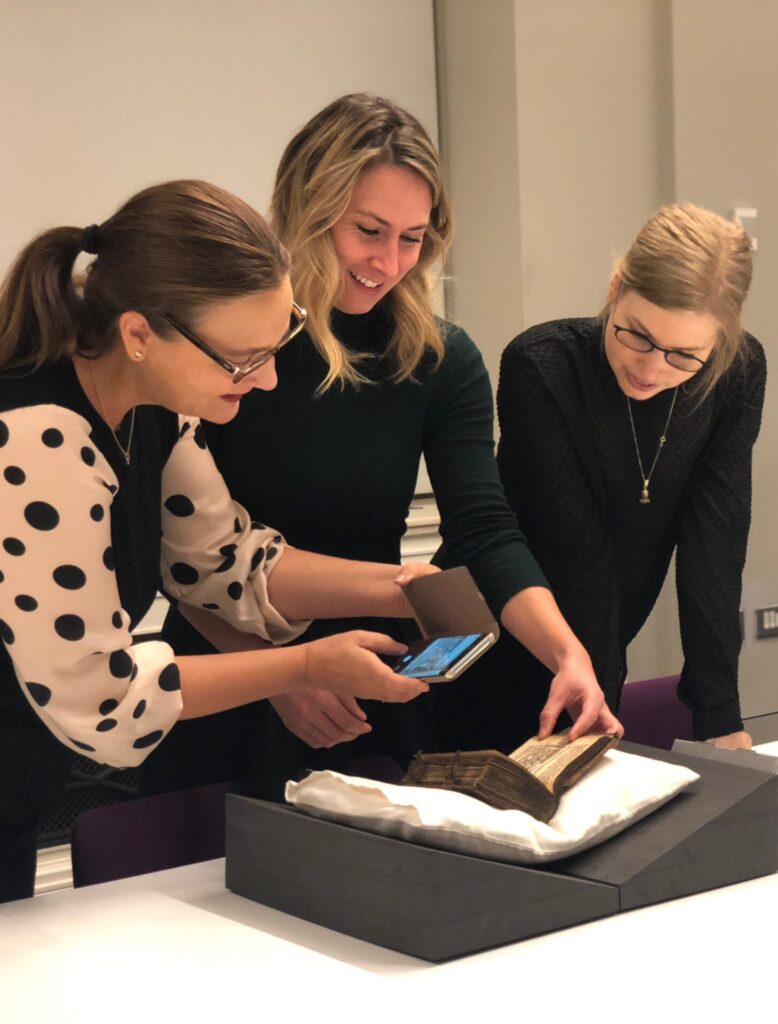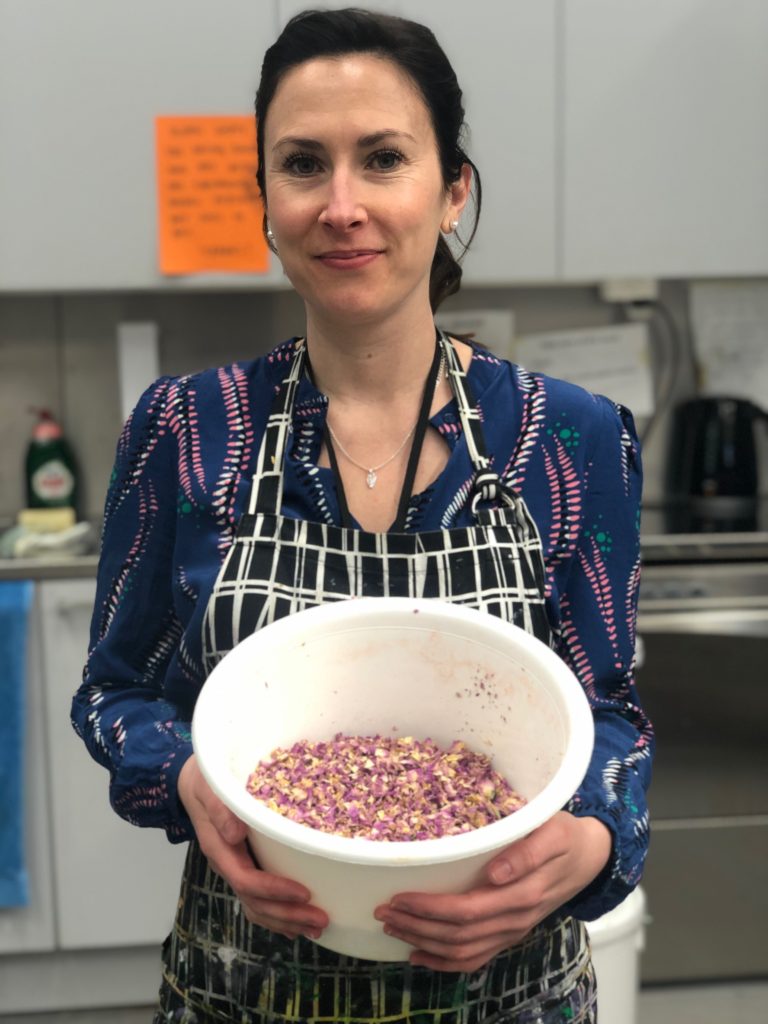Farewell to Michele!
Our Refashioning project is way over half-way through and it has come time to say farewell to the second member of our project, our postdoc researcher and dear friend Dr. Michele Robinson.
During her 2,5-year fellowship in our project, Michele has been leading our project work on prints and printed information of dress. She has identified and documented hundreds of early modern recipes that related to materials and making, such as recipes and instructions of how to dye fabrics or skeins of wool, remove stains from crimson silks and linens, and how to care for textiles at home. Many of these recipes were included in ‘Books of secrets’, also available for ordinary consumers in cheap printed media.
The dataset that Michele created, consisting of 677 recipes, many of them transcribed, provides an important basis for our material experimentation and reconstruction.

Paula Hohti Erichsen, Michele Robinson and Anne-Kristine Sindvald Larsen studying a recipe book at the Wellcome Collection.
We first tested these in 2019, when Michele organized an international two-day experimental workshop at Aalto University, titled ‘Dirty Laundry’. This allowed us and our guests to experiment with early modern recipes for stain-removal, home-based dyeing, and keeping textiles clean. Michele has recently written a journal article on the topic, which will be published Open Access in Costume.
In addition to providing important data for our project, Michele has carried out extensive research on early modern artisan dress and fashion, based on Italian sources. She has combined various archival sources in a particularly creative way to explore themes, such as cross-cultural influences in artisanal dress, and the presence and cultural meaning of pearls among artisan groups across Siena, Florence and Venice, 1550–1650. As part of this research work, Michele organized many important related academic events, including a workshop in London in 2018, where we discussed our documentary sources and studied early modern recipe books at the Wellcome collection, as well as an extensive four-panel session on lower class dress at the Renaissance Society of America Annual Conference in Toronto in 2019 where our project presented the preliminary results of our work for the first time. These events have offered us important platforms to discuss the use of our sources and contest our ideas on dress and fashion at lower social levels.

Michele has been the heart and soul of our project. Her extraordinary ability to continuously invent and introduce new ideas in a creative way, to carry out academic discussions in an intellectual, inspiring and constructive manner, and to produce research results of an extraordinary high standard, has shaped the direction of our work in important ways and given our project depth that it would have otherwise lacked.
In addition to her academic contribution, Michele has had an important management role in our project. Her amazing ability to be always prepared, organized, and on time meant that she not only assisted the PI in managing the overall project, but she also helped many other team members to plan their work and get things done.
Michele has been a wonderful team member. Her kindness and sense of humour has made it such a pleasure to work with her.
Dear Michele, we all thank you for your contribution and friendship. Our whole team wishes you all the best of luck for your future, and we hope to see you back in Europe very soon. We will miss you very much!

